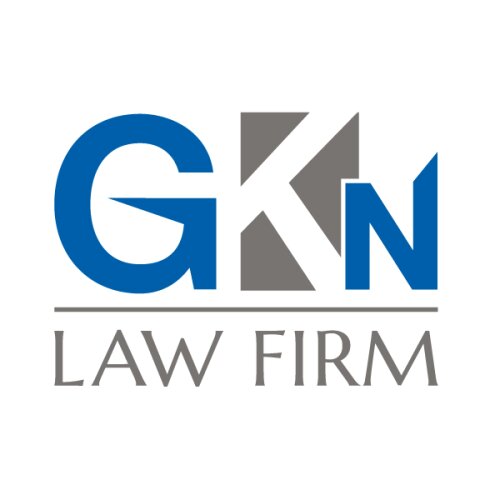Best Nonprofit & Charitable Organizations Lawyers in Liverpool
Share your needs with us, get contacted by law firms.
Free. Takes 2 min.
List of the best lawyers in Liverpool, Australia
About Nonprofit & Charitable Organizations Law in Liverpool, Australia
Nonprofit and charitable organizations play a significant role in Liverpool, Australia, by addressing social issues, promoting community welfare, and providing various services to those in need. These organizations operate under specific regulations and legal frameworks designed to ensure that they are accountable, transparent, and genuinely work towards charitable purposes. The legal structure for these organizations typically includes registration, governance, tax obligations, and compliance with both state and federal laws.
Why You May Need a Lawyer
Engaging a lawyer can be beneficial for nonprofit and charitable organizations in various situations, including:
- Setting up a new nonprofit organization, including assistance with legal structure and registration processes.
- Ensuring compliance with regulatory requirements and tax obligations, which can be complex and vary between jurisdictions.
- Drafting and reviewing contracts or agreements with donors, sponsors, or service providers.
- Advising on governance issues, such as board responsibilities and fiduciary duties.
- Assisting with dispute resolution and management of legal risks.
- Navigating the process of obtaining and maintaining charitable status and tax exemptions.
Local Laws Overview
Liverpool, Australia, is subject to both state and federal laws which govern nonprofit and charitable organizations. Key aspects to be aware of include:
- The process of incorporation under the Associations Incorporation Act 2009 in New South Wales.
- Compliance with the Australian Charities and Not-for-profits Commission (ACNC) regulations.
- Tax obligations and exemptions under the Australian Taxation Office (ATO), including Goods and Services Tax (GST), Fringe Benefits Tax (FBT), and income tax exemptions.
- Employment law considerations for staff and volunteers.
- Reporting and record-keeping requirements to ensure transparency and accountability.
Frequently Asked Questions
What is the process for setting up a nonprofit organization in Liverpool?
Setting up a nonprofit involves choosing the right type of legal entity, drafting a constitution, registering with the relevant state authority, and potentially registering with the ACNC.
Do nonprofit organizations need to pay taxes?
Nonprofit organizations may be eligible for various tax exemptions, including income tax and GST, but must apply for and maintain their charitable status through the ACNC.
How can an organization retain its status as a registered charity?
To retain ACNC registration, organizations must comply with governance standards, file annual information statements, and adhere to reporting requirements.
What governs the accountability of nonprofit boards?
Boards are held accountable by common law fiduciary duties, statutory obligations under the Corporations Act 2001, and requirements set by the ACNC for charitable organizations.
Can nonprofit organizations engage in commercial activities?
Yes, provided that these activities further the organization’s charitable purposes, and profits are reinvested into the organization’s objectives.
What are the obligations regarding volunteers?
Nonprofits must adhere to obligations that protect volunteers' rights and provide safe working environments, complying with relevant volunteer management guidelines.
How is conflicts of interest handled in nonprofit governance?
Boards should have policies to manage conflicts of interest, ensuring that any potential conflicts are disclosed and appropriately addressed.
Are there specific rules regarding fundraising activities?
Fundraising activities are subject to regulation under the Charitable Fundraising Act 1991, which requires organizations to obtain a licence and comply with conduct standards.
What insurance does a nonprofit need?
Insurance considerations include public liability, directors and officers liability, volunteer workers, and professional indemnity insurance, depending on the organization’s activities.
How does one dissolve a nonprofit organization?
Dissolution involves legal procedures outlined in the organization's governing documents and may require steps to properly distribute remaining assets according to charitable purposes and regulatory requirements.
Additional Resources
For further assistance, consider the following resources:
- The Australian Charities and Not-for-profits Commission (ACNC) for guidance on registration and compliance.
- The Office of Fair Trading NSW for information on incorporating associations and conducting fundraising activities.
- The Australian Taxation Office (ATO) for details on tax obligations and exemptions.
- Local services like the Liverpool City Council may offer community resources or support for local nonprofits.
Next Steps
If you need legal assistance, consider taking the following steps:
- Identify your specific legal needs and gather relevant documentation related to your organization.
- Contact a solicitor specializing in nonprofit and charitable law to discuss your situation and legal options.
- Utilize available local and online resources to educate yourself on the legal aspects relevant to your organization.
- Attend workshops or seminars that may be offered by the ACNC or local councils to gain a clearer understanding of your obligations and best practices in nonprofit management.
Lawzana helps you find the best lawyers and law firms in Liverpool through a curated and pre-screened list of qualified legal professionals. Our platform offers rankings and detailed profiles of attorneys and law firms, allowing you to compare based on practice areas, including Nonprofit & Charitable Organizations, experience, and client feedback.
Each profile includes a description of the firm's areas of practice, client reviews, team members and partners, year of establishment, spoken languages, office locations, contact information, social media presence, and any published articles or resources. Most firms on our platform speak English and are experienced in both local and international legal matters.
Get a quote from top-rated law firms in Liverpool, Australia — quickly, securely, and without unnecessary hassle.
Disclaimer:
The information provided on this page is for general informational purposes only and does not constitute legal advice. While we strive to ensure the accuracy and relevance of the content, legal information may change over time, and interpretations of the law can vary. You should always consult with a qualified legal professional for advice specific to your situation.
We disclaim all liability for actions taken or not taken based on the content of this page. If you believe any information is incorrect or outdated, please contact us, and we will review and update it where appropriate.









